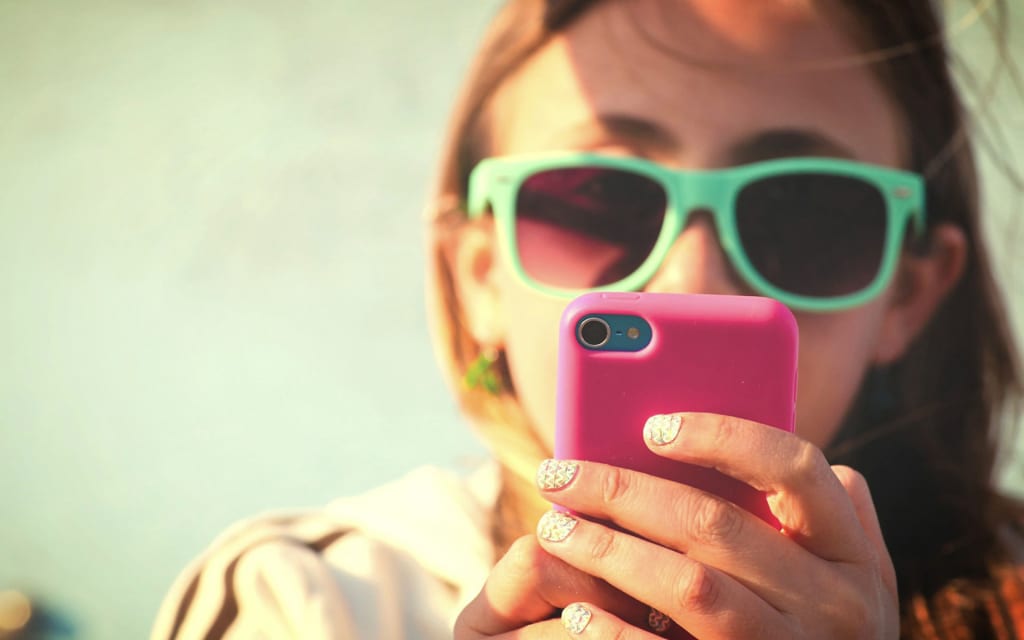Am I Addicted to My Fitbit?
With the fitness tracker becoming an integral part of our everyday lives, user are asking themselves, "Am I addicted to my Fitbit?".

Hi, my name is Danielle, and I am addicted to my Fitbit. Yes, I said it! My engagement with my Fitbit has become a full on addiction, checking my stats and steps endlessly throughout the day. But how did I get here? To fully appreciate the Fitbit addiction you should know how the fitness tracker epidemic came to pass. The Fitbit is a wireless, wearable activity tracker that took the market by storm after it’s launch in 2009.
The company was co-founded by James Park and Erdic Friedman, aka brilliant tech dudes, in early 2007 when they identified a use for sensors in small, wearable devices. The wearable collects data, including the number of steps taken, heart rate, movement during sleep, steps climbed, and other personal metrics. I had NO idea how much I tossed and turned while sleeping until I got my Fitbit. My co-dependence on coffee made a lot more sense when I saw my Fitbit sleep stats.
The first 5,000 units were sold directly to customers but Park and Friedman knew that to grow their new, fledgling company they’d need big partners. The raised money from venture capitalists and soon teamed up with Best Buy, yup I’d say that qualifies as a BIG partner.
In the beginning, the first generation Fitbits were only carried in a handful of retail locations but now they can be found in thousands of retails outlets throughout the world.
Why are fitness trackers so popular?

Image via Phone Arena
One of the keys to Fitbit’s continued success was its ongoing investment in new technology and models. In 2011 an altimeter, digital clock, and a stopwatch were added to create the Fitbit Ultra. In 2012, the Fitbits One and Zip began utilizing Bluetooth 4.0 and Bluetooth Smart and started synching to both iOS and Android phones in addition to the Fitbit website. In 2013, the Fitbit moved to the wrist with the Flex and Force. By 2013 there was a Fitbit type for every potential addict.
In 2015, the company went public and had a whopping $4.1 billion IPO. In 2015 with over 18 million units shipped, Fitbit had millions of Americans proclaiming “I am addicted to my Fitbit!”
Since 2011, Fitbit has sold 21 million devices and controls 71% of the fitness wearable market share. However, Fitbit’s success has encouraged competitors, such as Apple Watch and Android Wear, to jump into the fitness, wearable game. For Fitbit, activity tracking has always been a product in and of itself, but for these smart watch companies, activity tracking is a feature. This means in order to stay viable in the competitive tech gadget industry, according to co-founder James Park, Fitbit needs to “tie into more detailed clinical research.” Fitbit looking into blood glucose meters and other medical and fitness niche markets.
For example, they launched Fitbit Surge, which is marketed to serious runners. Fitbit is not blind to its future challenges, but it is looking to attract even more Fitbit addicts. This eye towards the future is why Fast Company named Fitbit one on “The Most Innovative Companies of 2016.” As an avid Fitbit user, I wrapped up the pros and cons of owning one for yourself. Let's see what all the hype is about!
Con: If you weren’t wearing your Fitbit, did it even happen?

Image via Tumblr
You don’t want to walk one step if you don’t have your Fitbit on. Oh, and forget about activities that don’t register as steps. Don’t even get me started on activities like Yoga, Pilates, and weight lifting. It's almost like you don't want to participate at all in these activities, since they wont be registered as steps.
My Fitbit addiction has made induced some strange behaviors. I’ve been known to leave the house, drive to the mall, realize I forgot to put on my Fitbit, and drive back home just to retrieve it. Mall walking really adds up and I’m not about to miss my 10,000-step goal. I first knew I was addicted to my Fitbit when I started parking in the last parking spot at the grocery store and bypassed the moving walkways at the airport. These, of course, are overwhelmingly good behavior changes but the leaving the mall and driving home to retrieve the forgotten Fitbit was not so appreciated by my sister who also endured the unnecessary round trip with me.
Pro: Earning badges faster than a Girl Scout selling cookies!

Image via Tumblr
Okay, okay I may have been a bit of an overzealous Girl Scout and earned just about every badge offered. Well, Fitbit has finally given my adult self an outlet for this overachieving, otherwise known as hoarding, personality quirk. You can make your badges private or public which allows for some, you know, friendly competition. (Yes, John I totally one-upped your 15,000 Urban Boot Badge with my 20,000 High Tops yesterday!) I’m not competitive or anything. Now that I think about the badges, maybe some would list this under the con list but not this badge-addicted, recovering Girl Scout!
Con: It can and will be used against you in a court of law!

Image via Tumblr
Unlike, more traditional medical records, Fitbit data is not legally protected and Fitbit’s data can be subpoenaed for civil and criminal court cases. In 2014, a personal injury lawyer used his client’s Fitbit data to show her inability to work as a personal trainer after an accident she was involved in. In that case, the info was shared voluntarily but it’s only a matter of time before the information is used against a Fitbit addict.
Pro: You're losing weight and getting in shape!

Image via Tumblr
Logic holds that if you increase activity, you’ll lose weight and/or get in better shape. Well, the Fitbit is a tool that can help you accomplish these goals but it’s also FUN! For me, it wasn’t necessarily about losing weight or getting in better shape it was about being more active. I forget that it’s a mechanism that is getting me to exercise more because for me it’s more of a fun game or hobby. I love collecting badges and competing with my friends in challenges, and every day when my Fitbit vibrates to tell me I’ve reached my 10,000-step goal I get a sense of pride and accomplishment. No matter what I’m doing or how tired or upset I am, when that bracelet vibrates I know I did something well today. That feeling is exhilarating and keeps me addicted to my Fitbit!
Con: It’s noticeable, very noticeable.

Image via Tumblr
While innovative and creative companies have begun to make lots of aesthetically pleasing jewelry to disguise your Fitbit, for the most part, everyone will know you’re wearing one and everyone will want to talk about it. I mean everyone, your 6-year-old nephew, your 90-year-old great aunt, the cashier at the grocery store, and the complete stranger on the elevator. Other Fitbit addicts will want to discuss how awesome it is with you and future addicts will want to grill you on all the details. Not to mention, I am wearing it in virtually every picture. My grandkids will look at old photos and know I was addicted to my Fitbit.
Pro: Being addicted with friends is much more fun!

Image via Tumblr
Due to work, I spend an enormous amount of time alone, hunched over a computer. When I’m more active I feel better, more alert, more connected to the real, natural world. You know the one, outside of our computers and the Internet. The challenges are a great way for me to stay connected to friends and feel less alone on my journey towards wellness and balance. We push and encourage each other and celebrate our each other’s goals and accomplishments.
We might live and work 1,000’s of miles from each other but that little bit of technology on our wrists bring us together is a safe, productive way. When I’m 12,000 words into a new book and I see my friend in Florida walked 15,000 steps, I’m motivated to take a break and walk my dog. Both my dog and I are happier and healthier as a result. In fact, I'd say my Australian Shepherd is addicted to my Fitbit too!
Am I addicted to my Fitbit? You bet I am!

Image via Tumblr
Not only am I proud of my Fitbit addiction, I don’t plan on weaning myself off of it anytime soon. When I first started using my Fitbit I averaged less that 5,000 steps a day. Now, I walk at least 10,000 steps a day, earning that all-important daily badge AND celebratory vibration! I lost some excess weight, feel great about myself, and have had fun doing it. If you haven’t tried one yet, what are you waiting for? Strap on a Fitbit today and you too will be shouting from the rooftops, “I am addicted to my Fitbit, and I am proud of it!”
Join the revolution! Get your own Fitbit here.
About the Creator
Danielle Banner
Head of Brand Partnerships @ Creatd (Nasdaq: CRTD). Future Liz Lemon. Current dog lover.






Comments
There are no comments for this story
Be the first to respond and start the conversation.